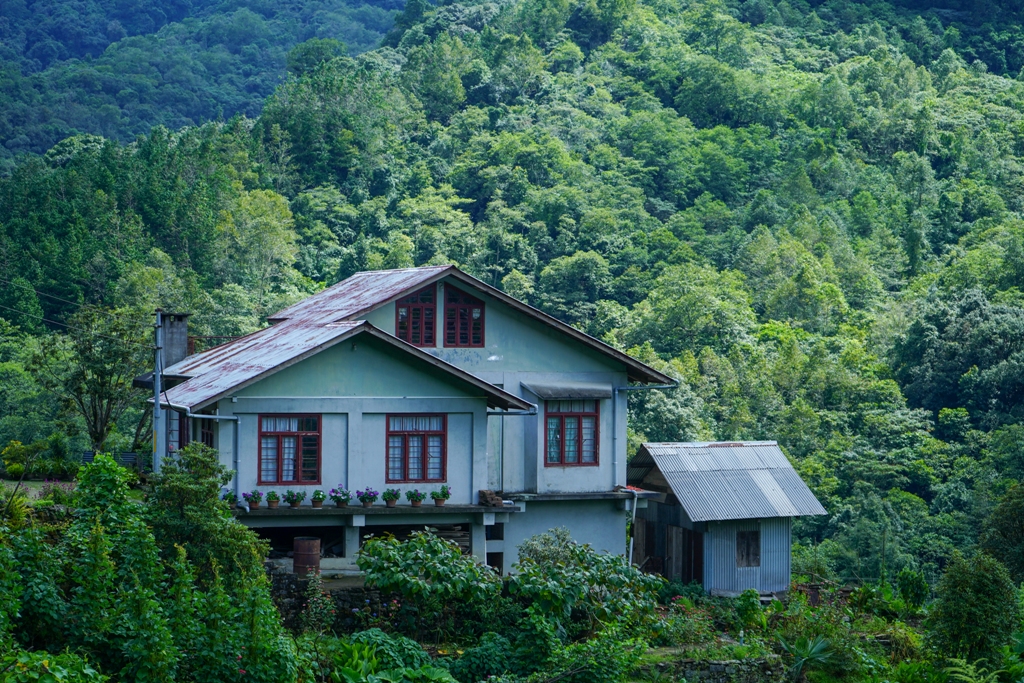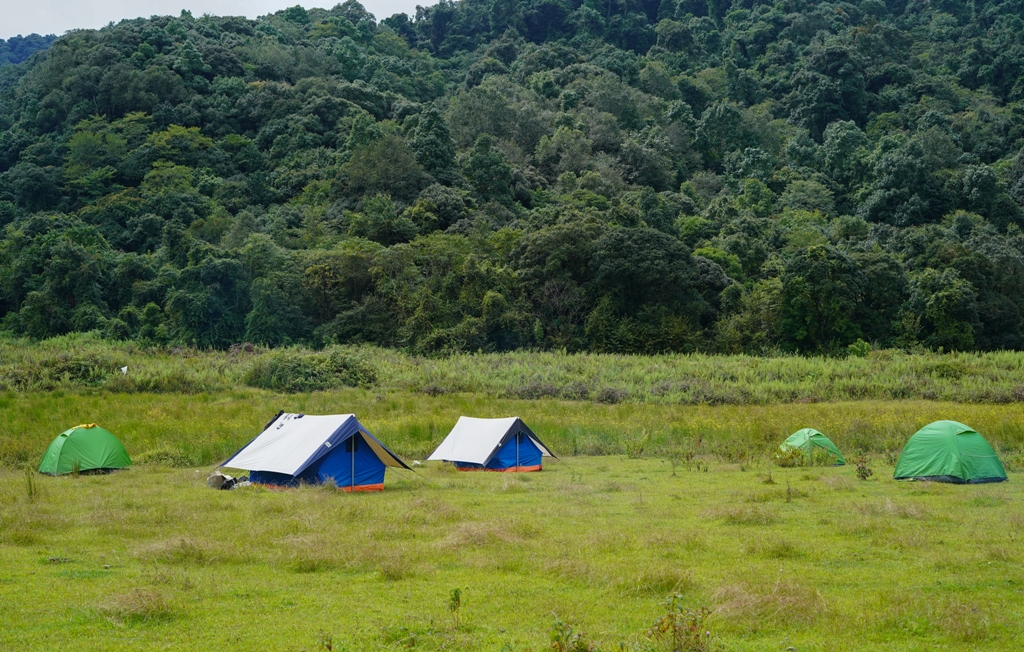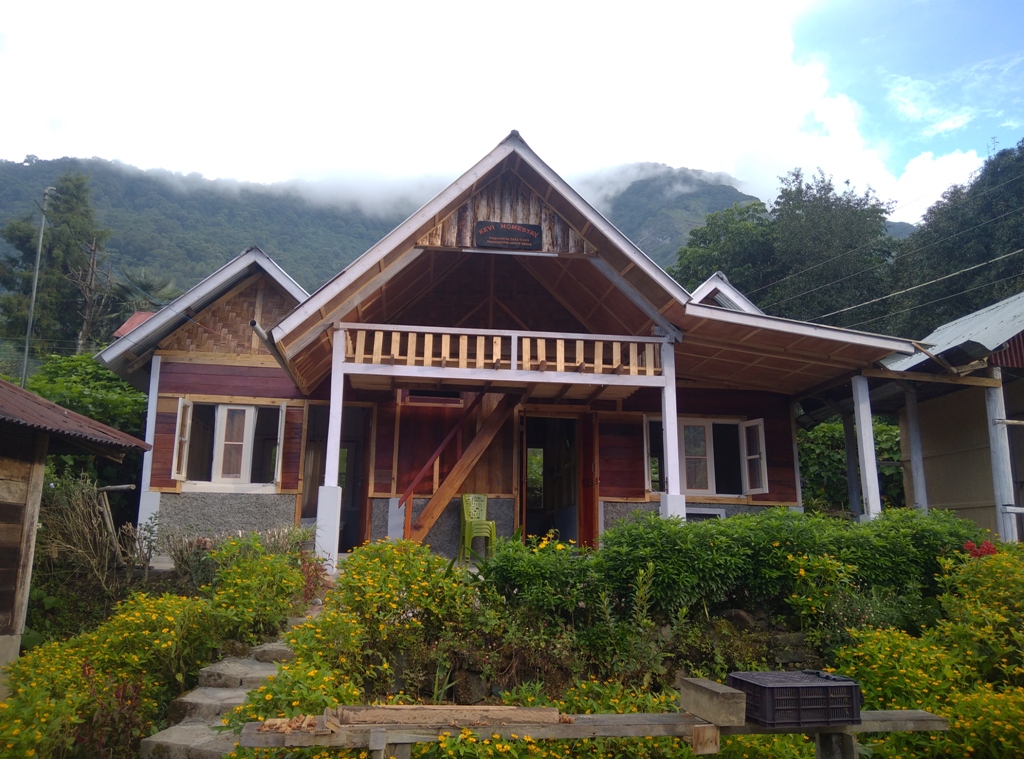FRIDAY, SEPTEMBER 26, 2025
- Home
- Shaping Opportunities through Eco-Tourism in Dzuleke Village
Shaping Opportunities through Eco-Tourism in Dzuleke Village
Dzuleke village has demonstrated a long-standing commitment to conservation, which now forms the foundation of its eco-tourism initiatives.
Share
As global temperatures rise and tourist destinations become overcrowded, sustainable tourism and eco-tourism have gained popularity in the recent years. The concept of ecotourism, first introduced by Helzer in 1965, is built on four pillars: minimising environmental impact, respecting local cultures, benefiting local communities, and ensuring traveller satisfaction.
Given its rich biodiversity, Nagaland comes under the Indo-Burma (Myanmar) biodiversity hotspots of the world. With an area of 16,579 sq.km, the state of Nagaland located in the northeastern region of India, harbours unique flora and fauna accompanied by a vibrant scenery. The state is hilly and mountainous except for those areas bordering the Assam valley.

Approximately 40 km from the capital Kohima lies Dzuleke village, a remote village with a scarce population of 156 residents known for its rich wildlife and green landscapes. Since banning hunting in 1999, Dzuleke has demonstrated a long-standing commitment to conservation, which now forms the foundation of its eco-tourism initiatives.
Tourists visiting Dzuleke are treated to a variety of experiences, from tranquil picnics along well-maintained picnic spots, trekking through the lush forests of Khwekha Ba, bird watching, butterfly spotting, and encounters with rare wildlife, including the blythe’s tragopan and rainbow trouts in Dzuleke River offer nature enthusiasts with unparalleled opportunities. Heritage-based attractions, such as the sacred Kenieyietou Meyase (Living Stone) and traditional Angami architecture, allow visitors to immerse themselves in the rich cultural fabric of the village.

A Glimpse into Tourism Business Management by a Village Tourism Board
Sensing the potential of eco-tourism and the interest shown by the residents of Dzuleke, the North-East Initiative Development Agency (NEIDA) started working with the community in 2014 with funding support from the Tata Trusts. The community members of Dzuleke were trained on hospitality, guiding, housekeeping, cooking, catering, etc., and provided with one-time support to convert their extra room to host tourists visiting their village, etc.
The Dzuleke Eco-Tourism Board (DETB) manages all tourism-related activities in the village, ensuring that both visitors and the community benefit. Local households are actively involved in running homestays, guiding tourists, providing catering services, managing guest houses, and supporting trekking and camping activities. This approach ensures that the community members benefit directly through tourism related activities and economic benefits remain within the community while at the same time help preserve the village’s natural and cultural assets.
An interesting feature is that the homestays in Dzuleke and other tourism-related activities are run on a rotational basis ensuring that all participating members benefit equally and the economic benefits are distributed fairly among the community.
Challenges Encountered
Despite the impressive progress, Dzuleke faces challenges typical of remote destinations. Limited connectivity, absence of public transport, and gaps in infrastructure such as adequate boarding and lodging facilities, trekking shelters and sanitation facilities require urgent attention.
Additionally, some local visitors have been observed engaging in inappropriate behaviours and littering highlighting the need for awareness and education especially for visitors to the picnic areas.
To address the problem of solid waste left behind by picnickers DETB has set up a Sanitation Committee that is responsible for collection and disposal of waste and keeping the picnic spots clean.

To further improve the tourist facilities in the village, the community in collaboration with NEIDA has started working to enhance and improve their tourism business management capabilities following the principles of eco-tourism. Signage, sanitation measures, and structured visitor management plans are being strengthened, ensuring that eco-tourism growth does not compromise the village’s day to day lives and ecological balance.
Celebrating World Tourism Day with Meaning
On this World Tourism Day, it is imperative that we value our rich biodiversity and look at it as opportunities to generate livelihood, while parallelly promoting conservation, and preserving cultural heritage. As more tourists seek authentic experiences in untouched natural and cultural landscapes like Dzuleke offers an exciting glimpse with full of possibilities of the future of sustainable tourism in Nagaland, where nature calls, and adventure truly awaits.
Keletsino Mejura and Lanukaba Amri

